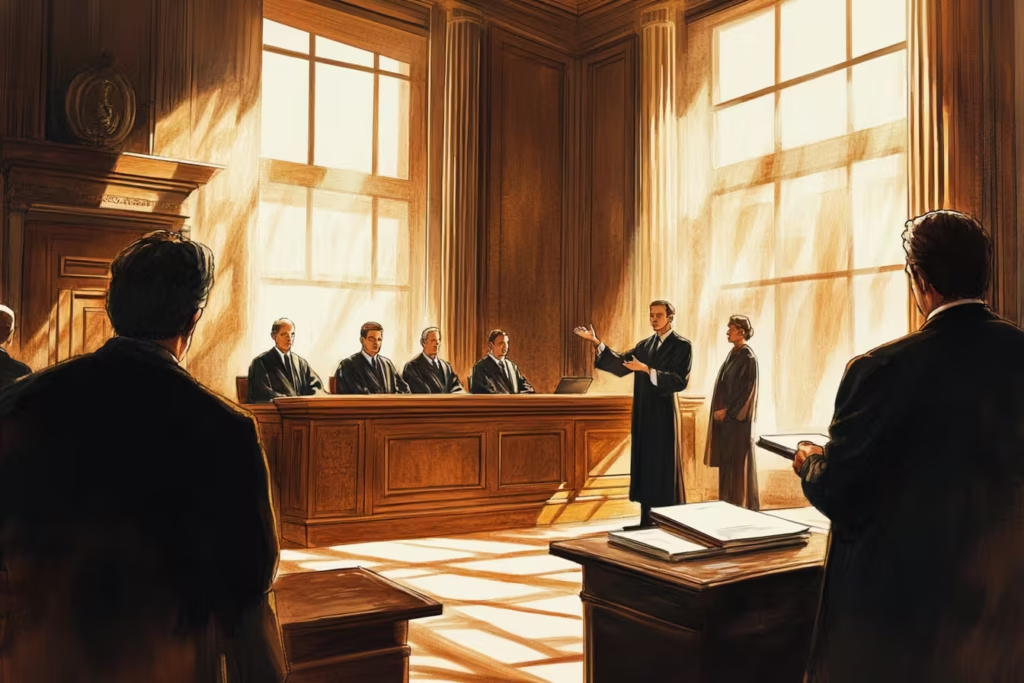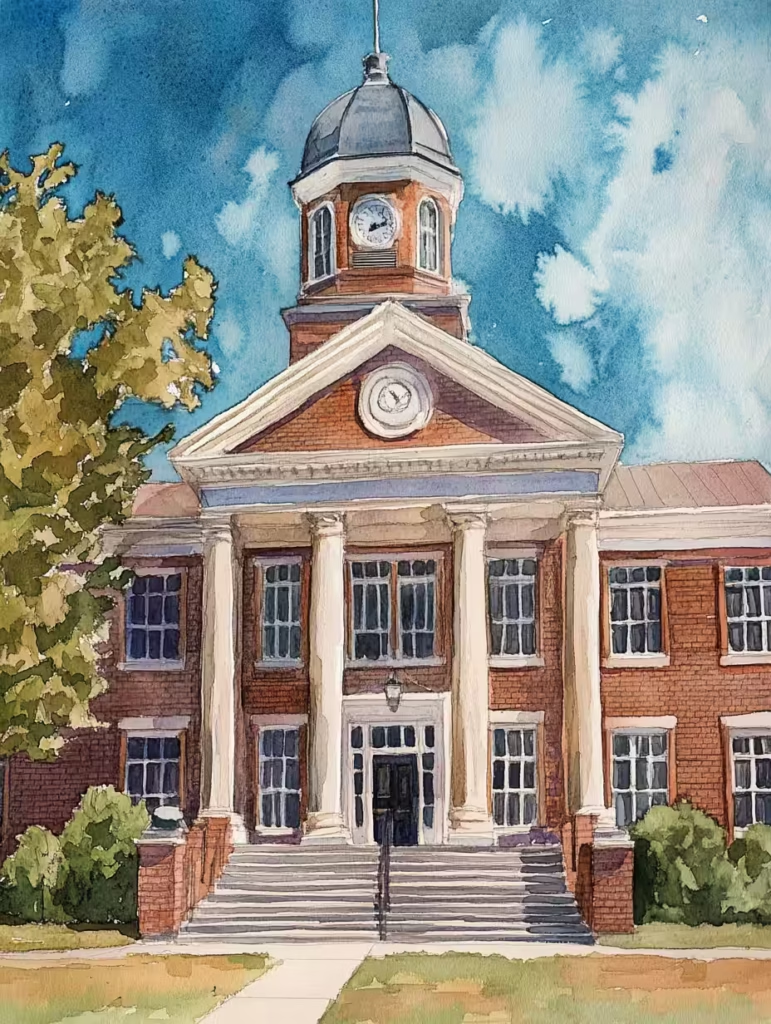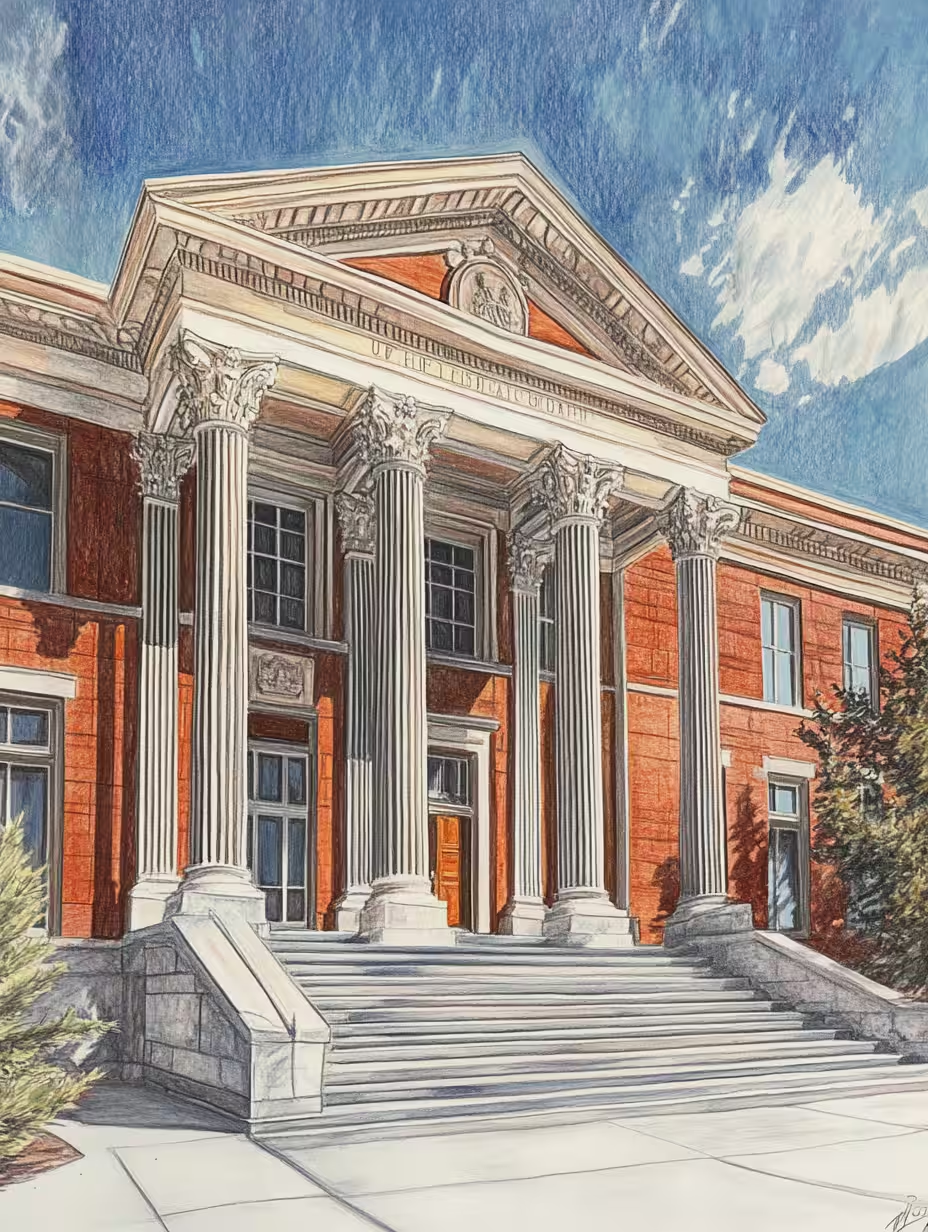Utah State Civil Appeals ‐ Your Path to Justice in Utah’s Appellate Courts
Appealing a trial court decision is not just about disagreeing with the outcome—it’s about ensuring the law was applied correctly. The appellate process is complex, requiring a keen understanding of the law, rigorous analysis of trial court records, and the ability to present persuasive written and oral arguments. At Lotus Appellate Law, we specialize in civil appeals, offering clients the expertise and dedication needed to navigate Utah’s appellate courts successfully.
Understanding the Civil Appeals process
Navigating the Complex Appellate Process in Utah
Civil appeals have tight deadlines, and failure to meet those deadlines can be a jurisdictional bar to the court hearing you case. Preserving your right to appeal is only the first step. Reach out to us today to discuss deadlines, appealable issues, and next steps in your case.
What Are Civil Appeals?
The category “civil appeals” is vast. Civil appeals generally include most appeals that are not criminal appeals. Civil appeals provide an opportunity in civil cases for an appellate court to correct errors made by a trial court. Unlike trial court litigation–where evidence is presented, witnesses testify, and juries deliberate–appeals focus on the legal questions arising from the trial.
Key aspects of a civil appeal include
- Preserving Your Right to Appeal: Within 30 days of a final judgment, or within 21 days of an interlocutory decision, the appellant must file a notice of appeal, put the court and parties on notice that an appeal will be filed. Sometimes it is in a winning party’s best interest to file a notice of cross appeal in turn, preserving their right to contest any contrary rulings along the way. A notice of cross appeal must be filed within 14 days of the notice of appeal. Keep in mind that different statutes carry with them different filing requirements. For example, a party appealing a UPEPA ruling must file a notice of appeal within 15 days of the district court’s denial of their motion to dismiss.
- Reviewing the Appellate Record: Appeals are limited to the evidence and proceedings presented in the trial court. All of the documents filed in the trial court plus the transcripts and evidentiary exhibits presented at trial make up an appellate record. An appellate court will not review the appellate record. Instead, appellate counsel is tasked with reviewing the trial court record, identifying important areas for the appellate court to review. It’s important that a party not place the burden of briefing or reviewing on the court. That is appellate counsel’s job alone.
- Identifying Legal Errors: It is appellate counsel’s job to raise arguments for the appellate court to consider. Once those arguments are raised, the appellate court will determine whether the trial court misinterpreted the law or improperly applied procedural rules. But an appellate court cannot raise an issue sua sponte–or on its own. In order for an appellate court to reverse, the issue has to be presented to it in accordance with the rule of appellate procedure.
- Crafting Appellate Briefs: In Utah, an appellate brief spans 30–60+ pages and is limited to 14,000 words. The Opening Brief is the most important part of any appeal. It sets the stage for the entire conversation. After the Opening Brief is filed, the appellee files a Responsive Brief, and then the appellant has the final word in a Reply Brief. Each jurisdiction has different rules requiring different parts of briefs, the word length, and different appellate doctrines. An appellate brief in Utah will look different than an appellate brief in California. As well, the judges in different jurisdictions will have different concerns. It’s important to understand the court you are practicing in front of.
- Oral Arguments: In some cases, attorneys have the opportunity to answer questions that the appellate judges have during oral hearings. Oral argument is called when the judges believe speaking with the attorneys might impact their decision. While an appellate attorney may want to argue every case, it simply isn’t possible for the appellate courts to hold argument in every case. But there are things an attorney can do to increase the likelihood of getting their case called for oral argument.
Civil appeals require a different skillset than trial litigation, which is why choosing a law firm that focuses exclusively on appellate work is crucial. With Lotus Appellate Law, you’ll have a dedicated partner to help you navigate the appellate process expertly.



Common Types of Civil Appeals We Handle
We handle a wide variety of civil appeals in Utah, including:
- Contract Disputes: Disagreements over contract interpretation, enforcement, or breach are often appealed, especially when significant financial stakes are involved. The Utah appellate courts value a plain language approach to contract interpretation. What does your contract say?
- Business Litigation: Commercial disputes, such as those involving shareholder rights, fiduciary duty breaches, or corporate governance issues, often require appellate intervention to resolve.
- Property Law: Appeals in property cases can include disputes over land use, zoning ordinances, eminent domain, and boundary issues. Some property issues carry with them constitutional implications.
- Family Law: Emotional and high-stakes issues like custody arrangements, alimony, and property division can be revisited on appeal to ensure a fair application of the law to each family involved. In family law appeals, the amount of discretion the appellate court gives to district court determinations can make or break your case. Proper framing can be essential to a favorable outcome.
- Personal Injury Verdicts: Tort law is governed by both the common law and statute, and the way those two intersect is confusing at times. An appeal may be necessary in a personal injury case to challenge or defend rulings on damages, liability, or evidentiary rulings that impacted the trial outcome.
Each of these areas requires a tailored approach, and our experience in handling diverse civil appeals means we are well-equipped to address even the most complex legal issues.
Why choose lotus Appellate law?
Appeals are high-stakes endeavors that demand specialized knowledge and a meticulous approach. At Lotus Appellate Law, we pride ourselves on providing exceptional service and achieving results for our clients. Here’s what sets us apart:
- Proven Appellate Expertise: With years of experience in Utah’s appellate courts, we understand the intricacies of the law and the expectations of appellate judges.
- Customized Advocacy: No two cases are alike. We develop strategies tailored to the specific facts and legal issues of your appeal.
- Attention to Detail: Successful appeals hinge on identifying even the smallest errors in the trial record coupled with the most prejudicial errors. Our meticulous review process ensures nothing is overlooked.
- Statutory Interpretation: In Utah, the appellate courts view the plain language of a constitutional provision or statute as controlling. Our attorneys excel at linguistic analysis and are even adept at using corpus linguistics as a tool when necessary.
- A Record of Success: From criminal reversals to contracts and tort wins, we’ve helped clients achieve favorable outcomes in some of Utah’s most challenging cases.
- A Big Picture Approach: Most appellate courts are less concerned with the outcome in any given case and are more concerned with the way any given outcome will impact future cases. At Lotus Appellate Law, we know our job is to do the research for the court, coming over-prepared to oral argument to answer the judges’ questions about the way this case will play out over time.
Our clients trust us not just for our legal knowledge but for our unwavering commitment to their success.

The Challenges of Civil Appeals
Civil appeals are not easy, and the challenges can be significant. Unlike in the district court, in appeals, each phase can take many months. For example, it is not uncommon to take six months to file an opening brief, six or more months to get a responsive brief, and then a few months to file a reply brief. On top of that, you must wait many months for oral argument if your case is called for argument, and then after oral argument, you must await the court’s decision. Waiting will always be a challenge.
Cost is also a challenge. An appeal can cost as much as a trial (depending on the cost of the trial attorney), and that can prohibit many parties from choosing to appeal their case.

Brief recap of the appellate process
- File a Notice of Appeal: To initiate the appellate process, a notice of appeal must be filed within the applicable deadlines—typically 30 days from the trial court’s final decision. In cases where you are the appellee defending your win on appeal, it may still be necessary to file a notice of cross appeal. Notice of cross appeal must be filed 14 days from the date the opposing party files its notice of appeal.
- Evaluate the Final Judgment or Verdict: Our team conducts a thorough review of the appellate record–including any written or oral orders–to identify appealable issues, such as legal errors or procedural mistakes.
- Prepare the Appellate Brief: This Opening Brief is the backbone of any appeal. It identifies the most prejudicial errors made by the trial court and supports arguments with research and citations to the record. The opening brief does most of the work that can be done persuading a court to rule in your favor.
- Present Oral Argument: In some cases, we present oral arguments to the appellate court, answering questions from the judges and advocating for your position. It is important in these arguments to over prepare to answer any questions the appellate panel has and to answer its questions directly and clearly, with support in the law.
- Await the Court’s Decision: After reviewing the briefs and hearing oral arguments, the appellate court will issue its decision. This process can take several months. This can be the hardest part of the process.
Throughout this journey, we’ll keep you informed and guide you through every step. We are prepared to take your case from start to finish.
What Our Clients Are Saying: “Trusted Expertise in Appellate Law”
Compare Us
Should you Hire an Appellate Law Firm?Frequently Asked Questions
Utah Appellate Process